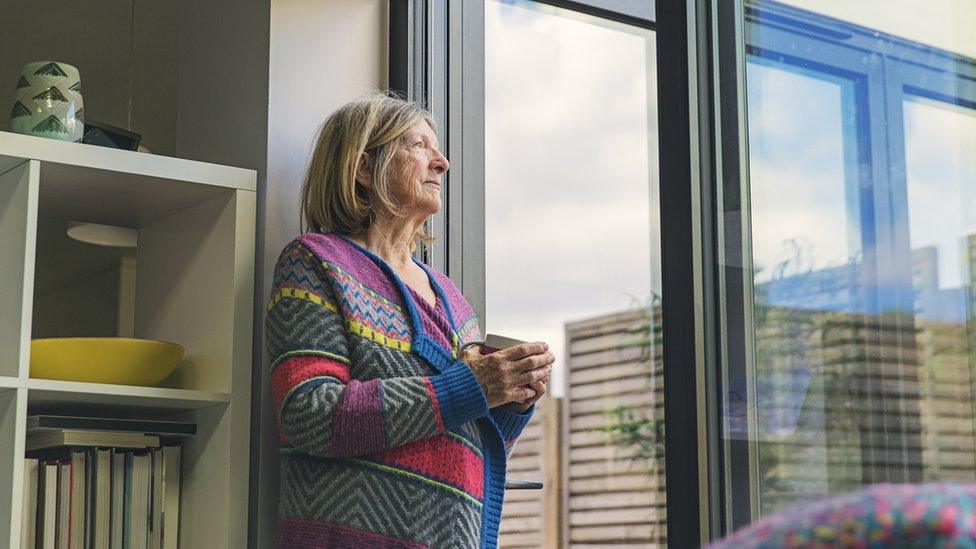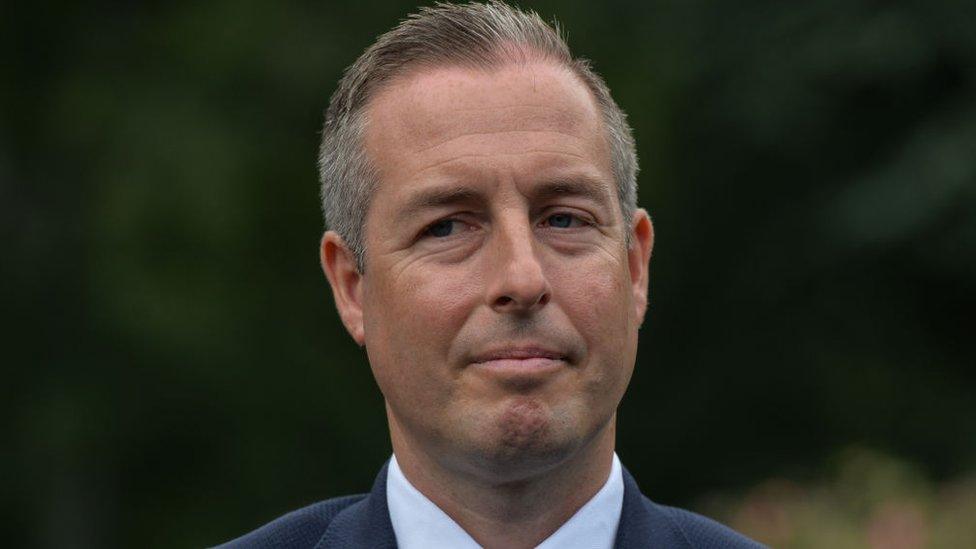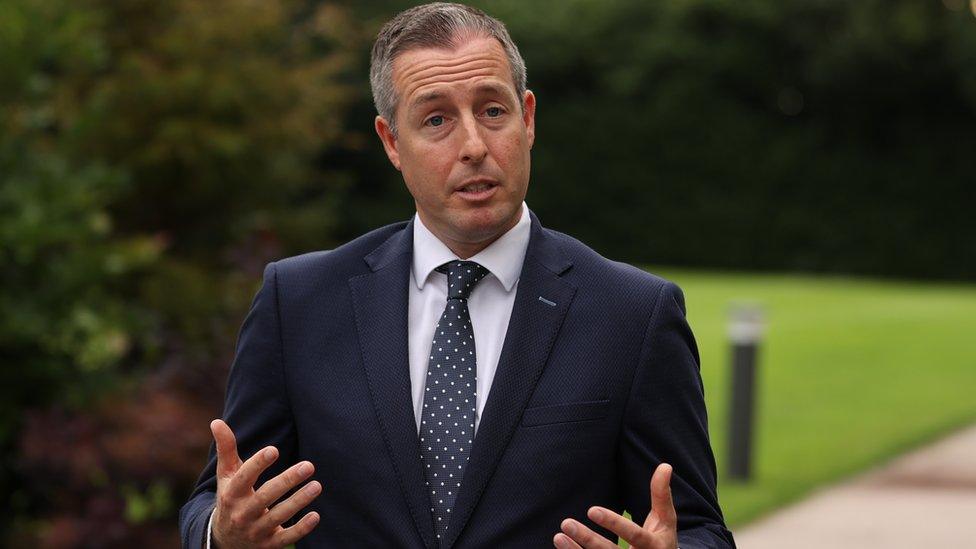Covid-19: Shorter self-isolation rules take effect in NI
- Published

The self isolation period will be cut to seven days
People in Northern Ireland who catch Covid-19 can stop self-isolating up to three days early if they test negative twice, under new rules.
They will now be able to end quarantine after seven days instead of 10, by providing negative lateral flow results on day six and day seven.
It brings Northern Ireland into line with England and Wales.
First Minister Paul Givan said the policy would apply retrospectively to people currently quarantining.
The decision to change the rules came after a meeting of Stormont ministers on Thursday, where they were told that the Omicron Covid variant now accounts for about 90% of cases in Northern Ireland.
Some parts of the health service, as well as other public sector bodies and hospitality businesses have expressed concerns about a wave of staff absences, due to the rapid spread of Omicron.
On Thursday, 4,701 new cases of the virus were confirmed by Northern Ireland's Department of Health, as well as a further three Covid-19 related deaths.
'Workforce crisis'
Mr Givan said the decision had been made to change self isolation rules in a bid to help businesses with their workforce planning.
Speaking to BBC News NI, he said the "best support" the Stormont executive could provide was to ensure businesses and public services could continue to operate, following a wave of staff absences due to the rapid spread of the Omicron variant.
The British Medical Association (BMA) warned earlier in the week that GP services in Northern Ireland faced "a very tough few weeks" due to staff shortages.

Paul Givan said the decision was taken to try to avoid a workforce crisis
Mr Givan also said about 20% of staff in the Northern Ireland Prison Service were currently absent because of Covid.
"That is reflected in other public sector organisations as well and within the private sector - you reach a point where more harm is being done by not having people at work who are able to be there because they have had negative lateral flow tests during that period," the Democratic Unionist Party assembly member added.
"We can't have a workforce crisis precipitating hospital pressures that may come in two to three weeks' time."
The first minister also said there was a sufficient supply of lateral flow tests in Northern Ireland, despite growing demand.
"There are enough but it's a matter of getting them out to where those key pinch points are - we are constantly getting them delivered," he added.
'Precarious'
Dr Frances O'Hagan from the BMA told the BBC's Good Morning Ulster programme the rule change would help services.
"Hopefully staff will be able to get their lateral flows and we want staff to have them on days six and seven because if they don't they can't come back," she said.
She said it was a "difficult time in the pandemic".
"We are at a time we haven't seen before as we have so many people infected at the moment," she said.
"Our numbers are probably a bit of an underestimation. Over Christmas we had difficult accessing PCRs due to the fact that staff numbers in those testing facilities were down," she said.
"Our GP practices are small so all we need is for one or two people to be out for us and it's service critical.
"I have never seen the staff shortages on the ground that I have seen in the past week and we could find some practices are precarious."

The list of Health Trust vaccination clinics is available on Trust websites at these links.
• Belfast Health and Social Care Trust, external
• Northern Health and Social Care Trust, external
• South Eastern Health and Social Care Trust, external
• Southern Health and Social Care Trust, external
• Western Health and Social Care Trust, external
More details of vaccinating pharmacies are available here:
• Community pharmacy booster COVID-19 vaccination service, external

Related topics
- Published30 December 2021

- Published29 December 2021
